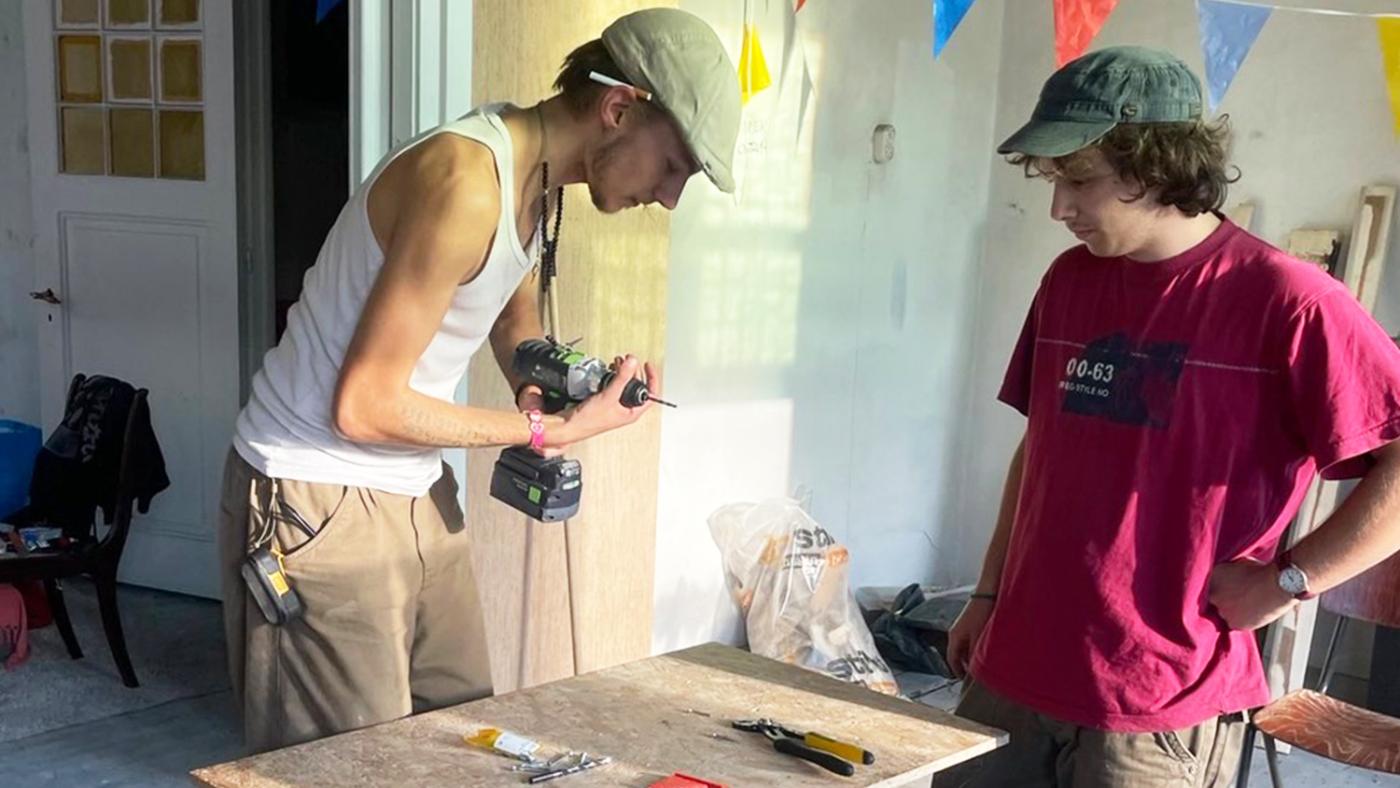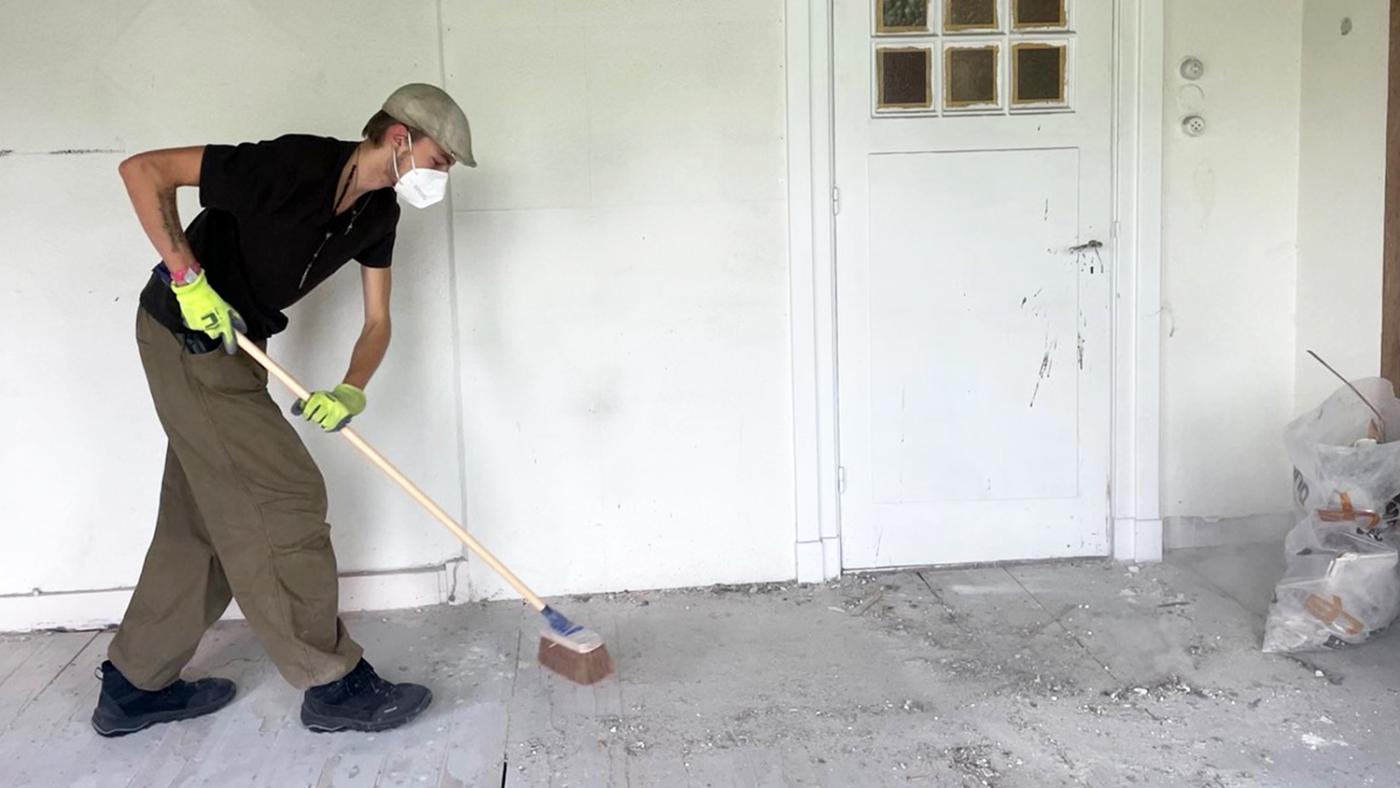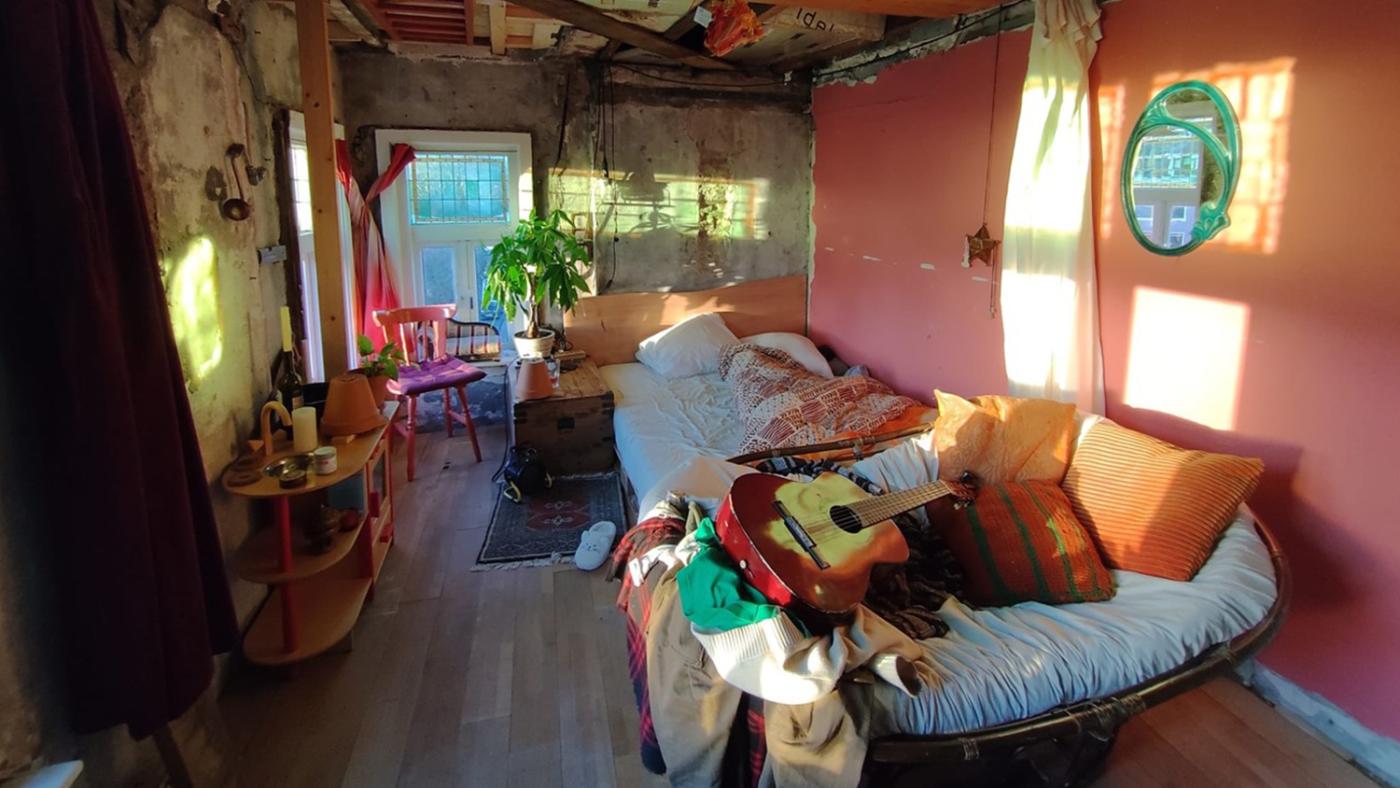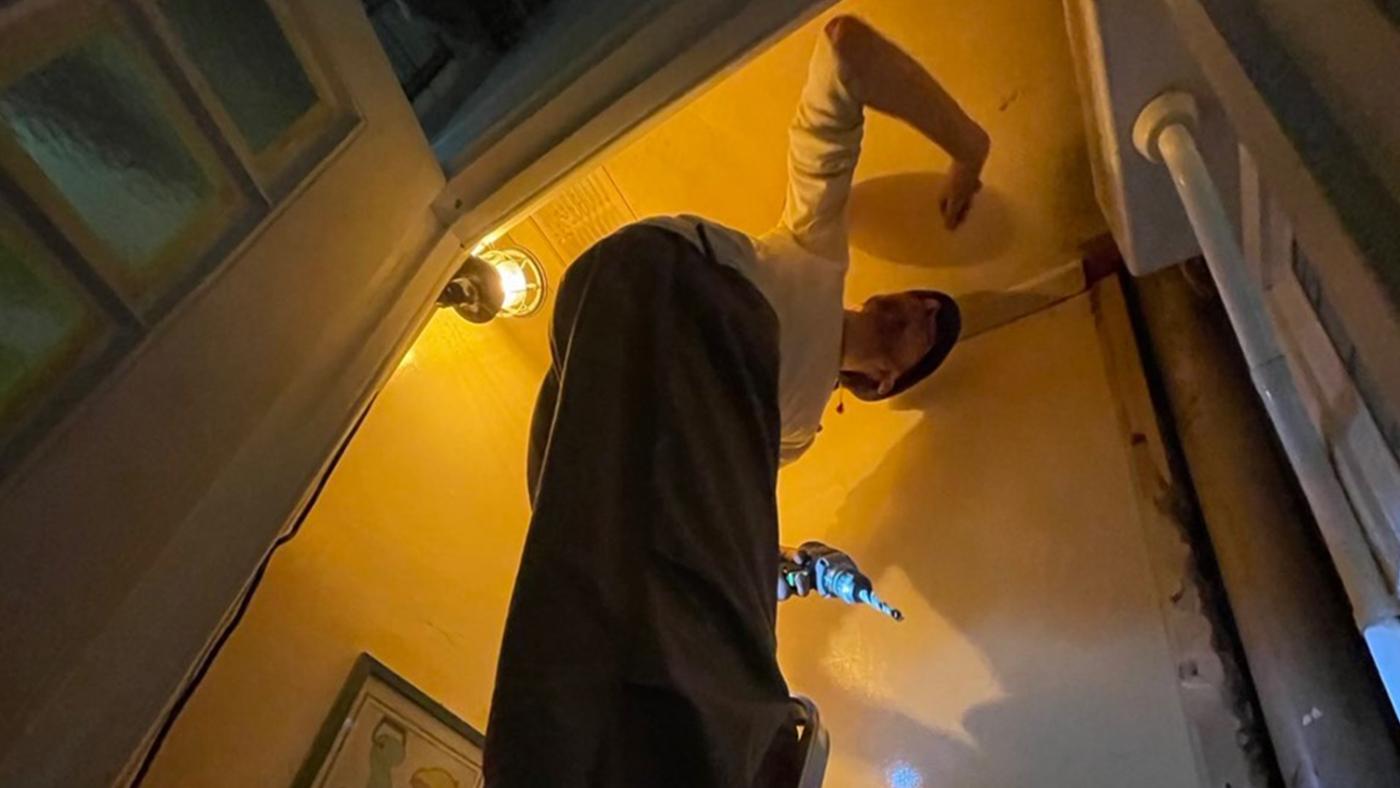Squatting students
‘This guy is playing Monopoly while we have no place to live'

After a quick tour of the building's three floors, past the homey kitchen, the cosily furnished living room, and the bedrooms with laminate flooring, it is hard to believe that no one has lived here for over twenty years. Yes, the balconies are covered in pigeon droppings, the rooms are poorly insulated and one can hardly call them finished. But, in just a few months, five students turned the building into something beautiful and liveable. And it's on Oudegracht, in the heart of Utrecht!
One of the students, whose nickname is Vogel (Bird), explains why they are occupying the building. "It was a necessity, we had no home." They had been moving from sublet to sublet for two years. However, there is also a bit of ideology behind the decision. "The housing shortage is so fucking massive, and then you look around and realise it doesn't have to be this bad at all."

Vogel is referring to the many illegally vacant properties in Utrecht. Proprietors have six months to report that their properties have gone vacant, after which the municipality seeks a way to make the place suitable for habitation. If they fail to do this, they risk getting a heavy fine. However, this rule is hardly enforced, which results in people buying several properties in the hope that they will increase in value over time. According to Vogel, that is what the owner of the building is doing. Though the decision to squat the place was made out of necessity, "we also want to show the government that this guy is playing Monopoly while many people have no place to live. It just doesn't make any sense."
Vogel tells DUB that he and Draak (Dragon), one of the other students living in the building, attended a meeting with squatters once. In this meeting, they were given a map of all the vacant buildings in Utrecht and told that they could choose one. "We chose this one because it's just so sick." Experienced squatters helped them a lot in the process of occupying the building. A "squatting guide" is also in circulation.
Here's how it works: "First you go and see if the house is really empty. If it is, you move in. If you can prove that you have been there for three days without anyone noticing, you are granted peaceful possession," says Vogel. This means that the building has been reclaimed, which gives the new residents certain rights. In their case, it was pretty obvious that no one was looking after the property. "The whole house was trashed. It's not that bad now, but you should have seen it when we moved in."
Isn't squatting illegal, though? "Not really. Breaking down the door is illegal, but in our case, the door was open." Vogel says they did everything according to the rules: they called the police after they occupied the building and the police approved their occupation. "Then the case goes to civil court and it is up to the homeowner to file a lawsuit. To win that case, he must demonstrate that he has plans for the property." According to him, the owner of their building has not done that yet.
Though squatting is not as scary as some may assume, Vogel notes that there are risks involved. "Sometimes, the proprietors are pretty big, tough guys and they will send henchmen to intimidate the occupants. Some people once tried to force our lock, then shouted that they were contractors who came to renovate the building." The property owner is not allowed to disturb the squatters. "Bear in mind you may not be dealing with nice people. People with a lot of money, like this guy, tend to be annoying," says Vogel.
Though things didn't get too bad in their case, Vogel has heard stories about gangs of thugs standing outside the door to intimidate the occupants. "Landlords do not always play by the rules. So, you must be a bit careful about what you say and who you let inside." The students make sure to secure the doors at night with thick locks and a barricade. “It is not that necessary, but it makes us feel safer," Vogel explains.
According to Vogel, few students are in "the squatting scene", which he attributes to a lack of time. Squatters must do small renovating jobs all the time, which is too time-consuming for somebody who has to study and work. "It's particularly difficult in the first few weeks when you don't have electricity or Wi-Fi. You can use your laptop, but at a certain point, it runs out of power too." Although those were the busiest months of his life, Vogel managed to pass all his courses at university.

The students have since managed to arrange electricity and Wi-Fi. They also purchased several gas heaters to make the house a little less cold. "You get used to everything. I take my showers at the gym and always wear two sweaters to keep warm. I also fixed the water pipes with my dad. We do get mice from time to time, but then again, most student houses do." DUB asks if there are other differences, apart from the lack of a shower. Vogel shakes his head, indicating he doesn't think so. Marx, one of the other squatters, yells from the living room: "Yes, we are much more respectful of our neighbours!"

The students held a mulled wine party for the neighbourhood after they had been living there for a month. Vogel: "A lot of people came. Everyone reacted very well to our arrival, actually." According to him, the neighbours thought it was a pity that the building had been empty for so long, and they were happy that it was being used again. "We want to have a good relationship with our neighbours. I admit this is in our own interest. That's why we make sure we do not drill or use a saw in the evenings or at weekends. So far, it's been going very well."
In short, these five students now have a place to live and they are not a nuisance to anyone. So why does squatting have such a negative stigma?
People often seem to associate current squatters with the squatting movement that happened in the Netherlands in the 1980s, when many evictions resulted in violence and vandalism. "I don't know a single squatter who is like that," Vogel says with conviction. "Everyone just wants a place to live. It's not that unusual and it's a lot of fun. You're always busy and learning to do things yourself."

Yet this squatting group was the subject of rather stigmatising publications. EOHoedan and the AD newspaper referred to negative stereotypes when writing about them. EO associated squatters with riots and hard drugs, comparing them to vagrants, while AD talked about the possibility of them damaging the building, something that Vogel does not want to do at all. "They should have had a look at the building before we moved in. There were pigeon droppings everywhere, no floors, and no windows. We made this a bit more liveable."
The five students are working with other squatters' groups to organise consultation hours and workshops on squatting, especially for students. The idea is to make squatting more accessible. After all, students are the "main" victims of the housing shortage.
The landlord reacts
The building's landlord, Robert-Paul Caron, is fed up with the squatters in his building. He says he is not aware of the alleged contractors who tried to force the lock. According to him, the building was not illegally vacant, as renovation permit applications are pending with the municipality. The applications are taking a long time to be processed because of the building's monumental status. For this reason, the homeowner considers the students' actions a criminal offence. "Squatters in the Netherlands are thieves, simple as that," says Caron. He says he has filed a lawsuit against the squatters.